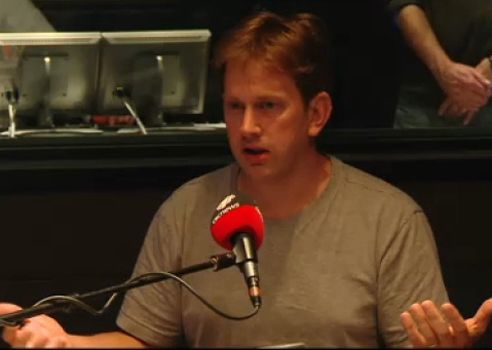Reading time: Less than 1 minute
This is my weekly installment of “writing about writing,” in which I scan the world to find websites, books and articles to help other writers. Today I discuss a CBC blog post about whether algorithms help writing…
When listening to one of my regular podcasts, the one for the Canadian Broadcasting Corporation’s show The Current, I heard an intriguing question: Can algorithms make science fiction better? (If this interests you, too, you can listen to the podcast or read the transcript.)
The word that grabbed me was “algorithms” because I have so little affection for SciFi. But Toronto author Stephen Mache (pictured above) recently worked with two researchers to build an algorithm to help him write a science fiction story. The finished product titled Twinkle, Twinkle ultimately appeared in Wired magazine.
I listened to the podcast with great interest followed by great disappointment. The show had billed the algorithm as a co-writer but, in fact, it was an editor. (I just stopped myself from writing “only an editor,” because I believe editing to be one of the most important jobs of writing.) Here is how Stephen March explained what he and his algorithm-writing colleagues discovered:
I assumed that there would be a way to turn narrative structure into something mathematical that then we could apply – [but there was] nothing. There’s nothing useful in any of the narrative analysis by algorithms.
Algorithms aren’t yet useful for creative work. They can take away the boring jobs of calculating sentence length, counting adjectives and figuring out your use of the passive voice. (For this kind of help you can get it for no charge from apps like Character Counter, the Hemingway Editor and Text Analyzer. You can also get it for a modest fee from ProWritingAid.) But they can’t yet build compelling narratives. As a writer that makes me feel somewhat relieved.
An earlier version of this post first appeared on my blog on Jan. 8/18.


